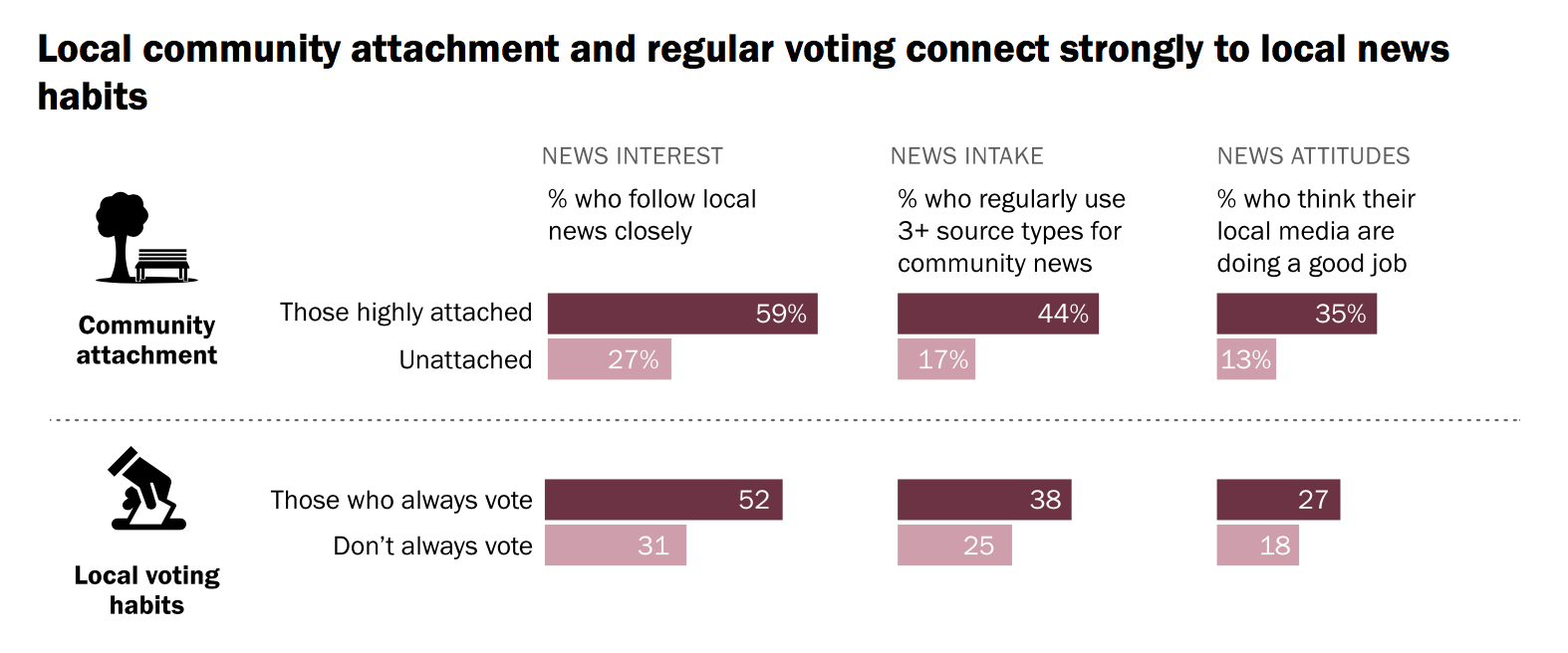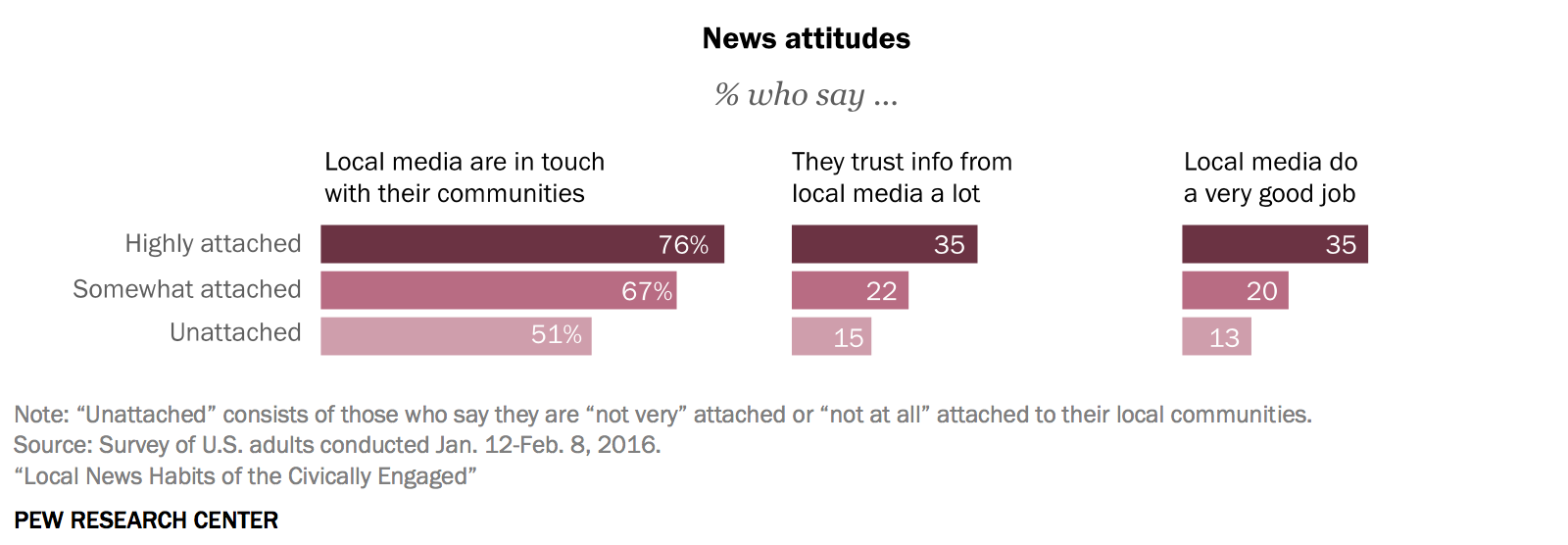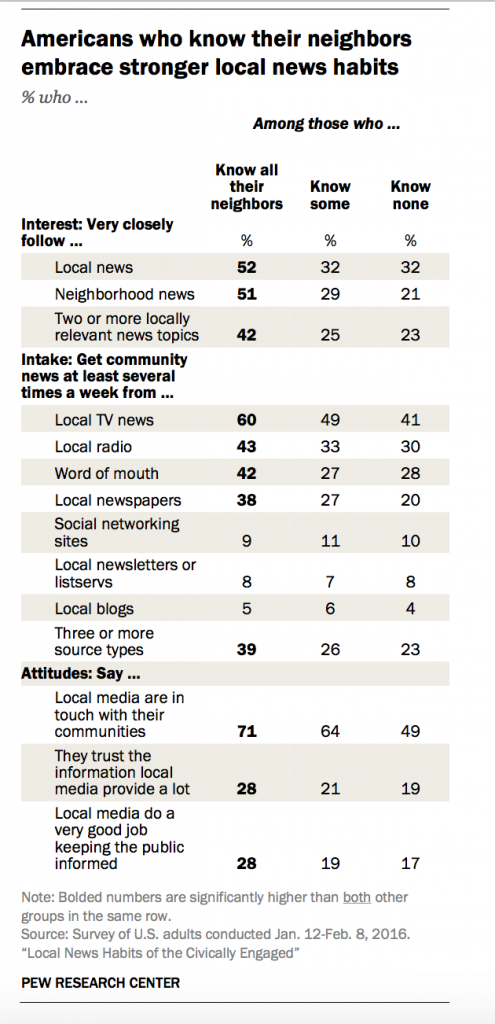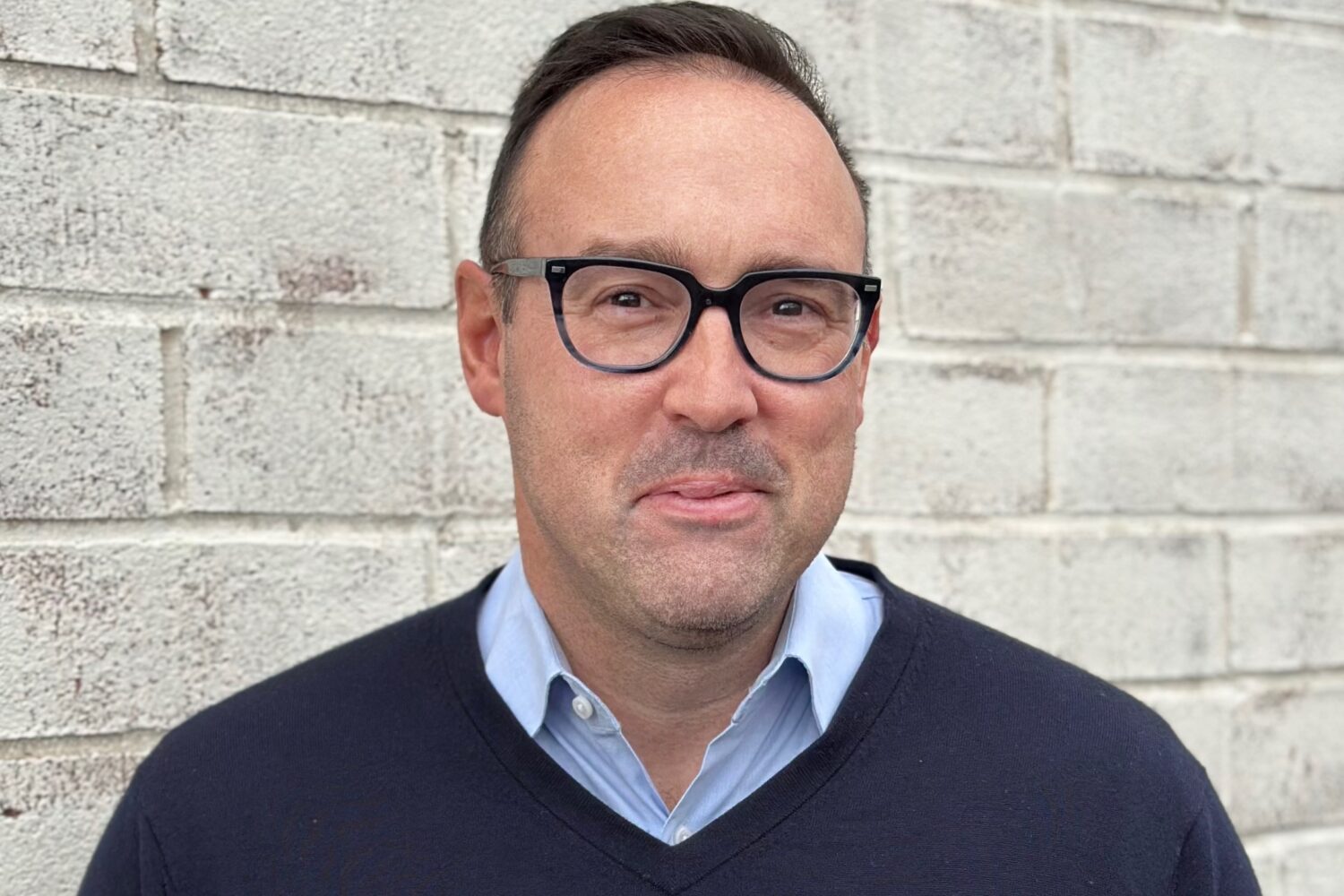People who have a deep attachment to their community are far more likely to follow local news closely and get it from more than one source, according to a new study from the Pew Research Center.

That’s not a huge surprise, of course, but what’s interesting is how those civically minded individuals view the news they consume. Only 35 percent said they have “a lot” of trust in the information they receive from local media–the same percentage who said their local news sources “do a very good job.”

Local television is the most popular source of news for these people, followed by newspapers and word of mouth (which were tied in terms of influence), and then radio.

Among all this is one figure to really worry about, if you care about things like the future of the republic. Only 19 percent of the people Pew surveyed said they felt a high degree of “attachment” to their communities, while 47 percent said they were “somewhat attached” and a third said they felt “little or no sense of attachment.”
Americans fetishize community–just watch a political convention for mawkish calls to small towns (which, like parents and grandparents who arrived in the US with nothing but a dream, apparently produced 99 percent of all speakers). But when it comes to actually caring about our communities–well, that’s apparently not all that popular.
As it happens, it’s people who know their neighbors a lot who are far likelier to follow local news closely (even if only 28 percent of those people say they trust those news sources a lot).

This raises an intriguing question for news nerds: There’s been a lot of debate about what responsibility local news organizations, particularly print publications, have toward covering the nuts-and-bolts stuff of local government. This presents a very difficult choice in a business that’s shifted to digital distribution, a field in which you can usually make money only by appealing to the widest audiences possible. So it’s tough, for example, to cover school-board meetings. So how does one provide local news to an audience that may not necessarily want it?




















